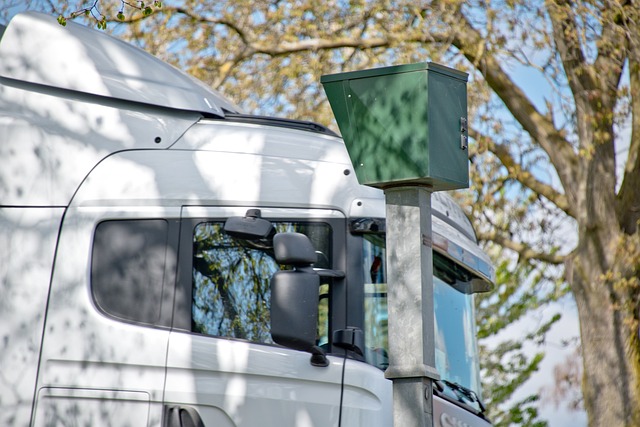Non-trucking liability requirements are essential legal protections for independent drivers and transportation businesses, addressing gaps in liability coverage outside traditional trucking. These requirements mandate specific insurance coverages and risk management strategies for diverse operational conditions, such as local deliveries or personal vehicle uses by contractors. By adhering to these mandates, companies can minimize financial risks, boost safety, strengthen partnerships, and streamline operations while meeting regulatory standards. Key practices include understanding local laws, regular safety training, contractual agreements, digital solutions, audits, rigorous background checks, adequate insurance coverage alignment with federal guidelines, comprehensive driver training, meticulous record-keeping, and avoiding common pitfalls to ensure both operational security and independent driver protection.
In today’s complex logistics landscape, ensuring compliance with non-trucking liability requirements is paramount for businesses and independent drivers alike. With the rise of gig economy models, understanding these regulations—which safeguard against personal injury and property damage—is crucial for risk mitigation. This article delves into essential aspects of non-trucking liability, highlighting the vital role of independent driver protection strategies. By exploring best practices and common pitfalls to avoid, we empower stakeholders to navigate this intricate terrain effectively.
Understanding Non-Trucking Liability Requirements

Non-trucking liability requirements are crucial aspects of the legal framework governing transportation and logistics industries, particularly for independent drivers. These requirements mandate specific insurance coverage and risk management strategies to protect against potential liabilities arising from operations that fall outside traditional trucking activities. Understanding these mandates is essential for both drivers and businesses to ensure they meet legal obligations and safeguard their financial well-being.
For instance, non-trucking situations may include deliveries made by independent contractors using their personal vehicles or when a driver is engaged in local hauls not considered part of their regular trucking operations. In such cases, standard trucking insurance policies might not provide comprehensive protection. Therefore, independent drivers and businesses must familiarize themselves with non-trucking liability requirements, including specific insurance coverage options tailored for these scenarios, ensuring adequate protection under varying operational conditions.
The Role of Independent Driver Protection

In the complex landscape of transportation and logistics, ensuring compliance with non-trucking liability requirements is paramount. One crucial aspect often overlooked is the role of independent driver protection. Independent drivers, who operate their own vehicles under contract with shipping companies, face unique challenges that demand specialized considerations. They are not traditionally covered by the same insurance policies as company drivers, leaving a potential gap in liability protection.
Independent driver protection refers to the measures and policies implemented to safeguard both the drivers themselves and third parties from risks associated with their work. This includes adequate insurance coverage for personal injury, property damage, and legal liabilities that may arise during the course of their tasks. By providing robust independent driver protection, companies can mitigate financial risks, enhance safety, and foster trust among their contractual partners, ultimately ensuring smoother operations and compliance with non-trucking liability requirements.
Strategies for Ensuring Compliance

Ensuring compliance with non-trucking liability requirements is a multifaceted task, especially for companies managing a fleet of vehicles and independent drivers. A robust strategy begins with thorough understanding and documentation of local laws and regulations regarding non-trucking activities. Regular training sessions for all drivers, focusing on safety protocols and legal updates, are essential to maintain adherence. Implementing digital solutions like advanced tracking systems and automated compliance checks can significantly enhance accuracy and efficiency.
Moreover, establishing clear contractual agreements with independent drivers, outlining non-trucking liability expectations and responsibilities, is a proactive step. Regular audits and ongoing monitoring of operations ensure that practices remain compliant. By integrating these strategies, businesses not only mitigate legal risks but also foster a culture of safety and accountability among their workforce.
Best Practices and Common Pitfalls to Avoid

Best Practices & Common Pitfalls to Avoid
One of the cornerstones of ensuring compliance with non-trucking liability requirements is adopting robust best practices. First and foremost, meticulously vet independent drivers through thorough background checks, verifying insurance coverage that aligns with federal guidelines, and assessing their driving history. Implement a comprehensive training program that educates drivers on safety protocols, load securing procedures, and legal obligations specific to non-trucking operations. Maintaining detailed records of all driver interactions, trips, and incidents is also paramount for tracking performance and facilitating compliance audits.
Avoiding common pitfalls is equally critical. Neglecting to update liability insurance policies according to changing regulatory landscapes can leave your company vulnerable. Similarly, failing to establish clear communication channels with independent drivers regarding expectations, policy updates, and incident reporting can create confusion and undermine accountability. Resist the temptation to cut corners on safety measures or skip necessary paperwork; doing so not only jeopardizes compliance but also increases risk of costly legal repercussions and damage to your company’s reputation.
Ensuring compliance with non-trucking liability requirements is vital for maintaining operational integrity and mitigating financial risks. By understanding these regulations, leveraging independent driver protection strategies, and adopting best practices, transportation businesses can navigate the complex landscape with confidence. Remember that staying informed and proactive regarding non-trucking liability is key to avoiding common pitfalls and fostering a safe, compliant work environment for all drivers.
